
Transitions Online_Around the Bloc-Romanian Ruling Party Pitted Against Corruption Agency
Social Democrats close ranks as two of their ministers face abuse of office allegations in a corruption case involving the party’s boss.
More...We kindly inform you that, as long as the subject affiliation of our 300.000+ articles is in progress, you might get unsufficient or no results on your third level or second level search. In this case, please broaden your search criteria.

Social Democrats close ranks as two of their ministers face abuse of office allegations in a corruption case involving the party’s boss.
More...
The powerful interior minister is also under a spotlight as the authorities open a probe into corruption allegations against him.
More...
Opposition parties claim Slovenian authorities concealed the laundering of over 1 billion euros from an Iranian state bank with connections to nuclear weapons proliferation.
More...
The article deals with changes in the anti-corruption legislation of Ukraine regarding gifts. In particular, gifts are legally defined in a different way than undue advantage. Gifts characterize acts related to corruption and in which there are no signs of corruption. The notion of undue advantage characterizes corrupt acts. The author of the article proves that a public official receives a gift as a token of gratitude after the correct execution of his official functions or without connection with the performance of his official functions. Violation of prohibitions on receipt of gifts entails administrative responsibility under Art. 172-5 of the Code of Ukraine on Administrative Offenses. Violation of legislative prohibitions on solicitation or acceptance of an undue advantage entails criminal liability under articles of the Criminal Code of Ukraine. The article presents scientific explanations and practical recommendations for making a new decision on liability for violation of legislative prohibitions on receiving gifts. Proposals for amendments to articles 354, 368, 368-3, 368-4, 369, 369-2 of the Criminal Code of Ukraine have been developed. It is expected that they will indicate that when committing the corruption offenses provided for in these articles, a person requires an undue advantage or agrees to receive an undue advantage in exchange for actions related to his official powers. Such a requirement or consent always precedes the actions associated with its official powers.
More...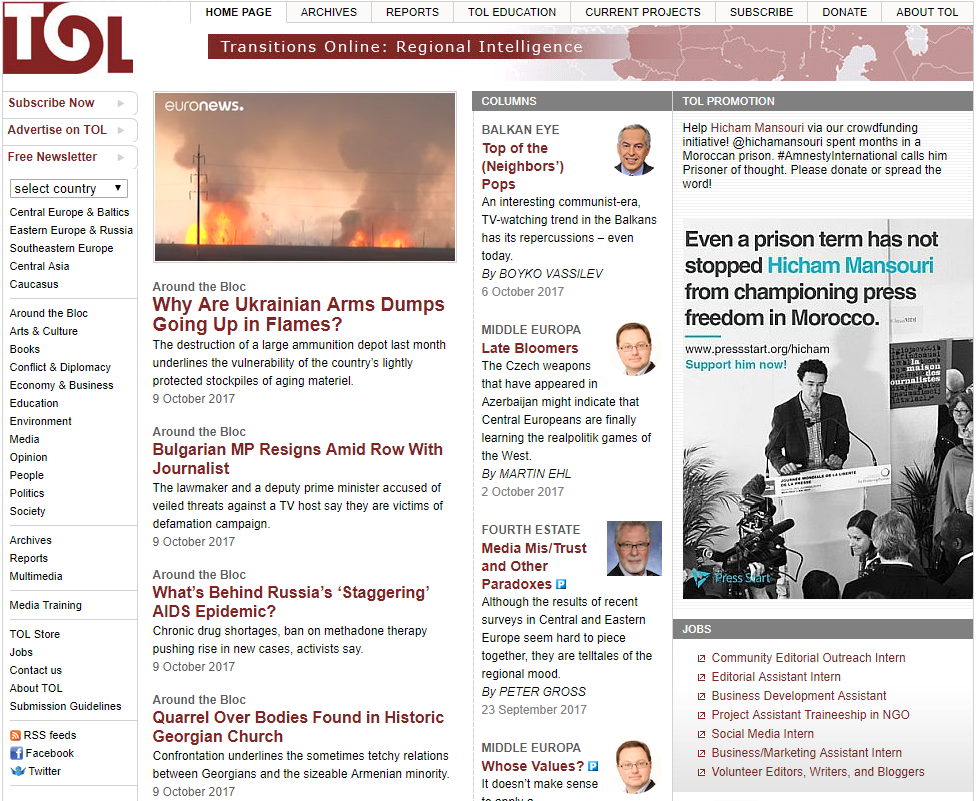
Event was arranged by a former U.S. lawmaker with ties to leading Ukrainian and Hungarian politicos.
More...
The lawmaker and a deputy prime minister accused of veiled threats against a TV host say they are victims of defamation campaign.
More...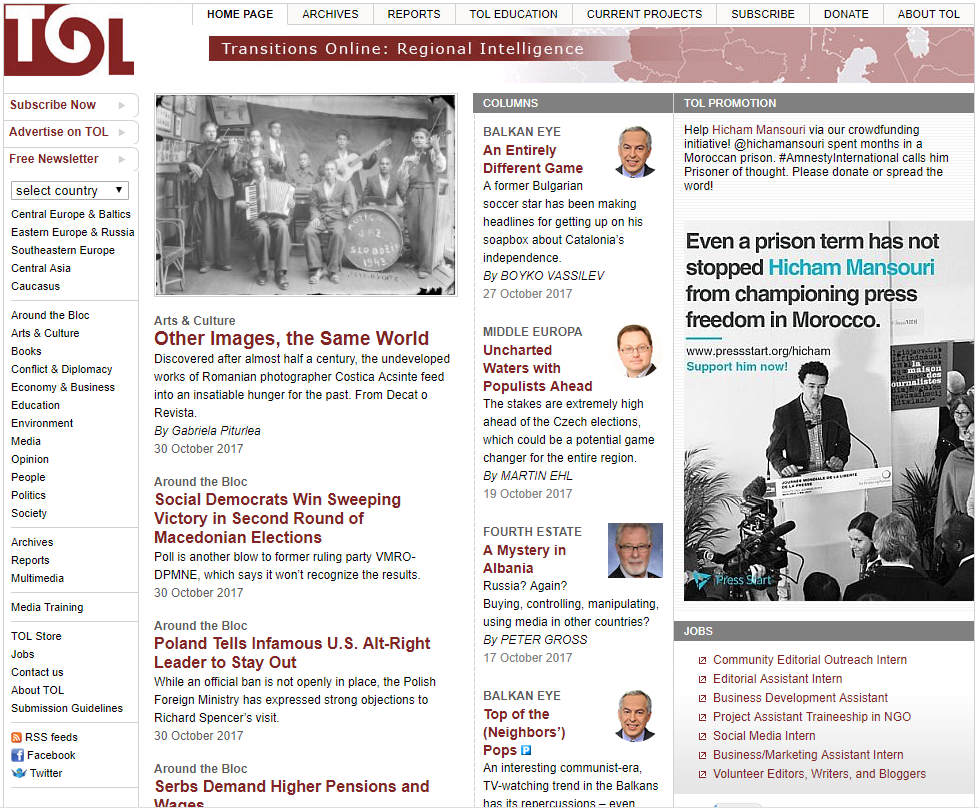
Albania; Edi Rama; Tahiri; Cannabis; drug trade
More...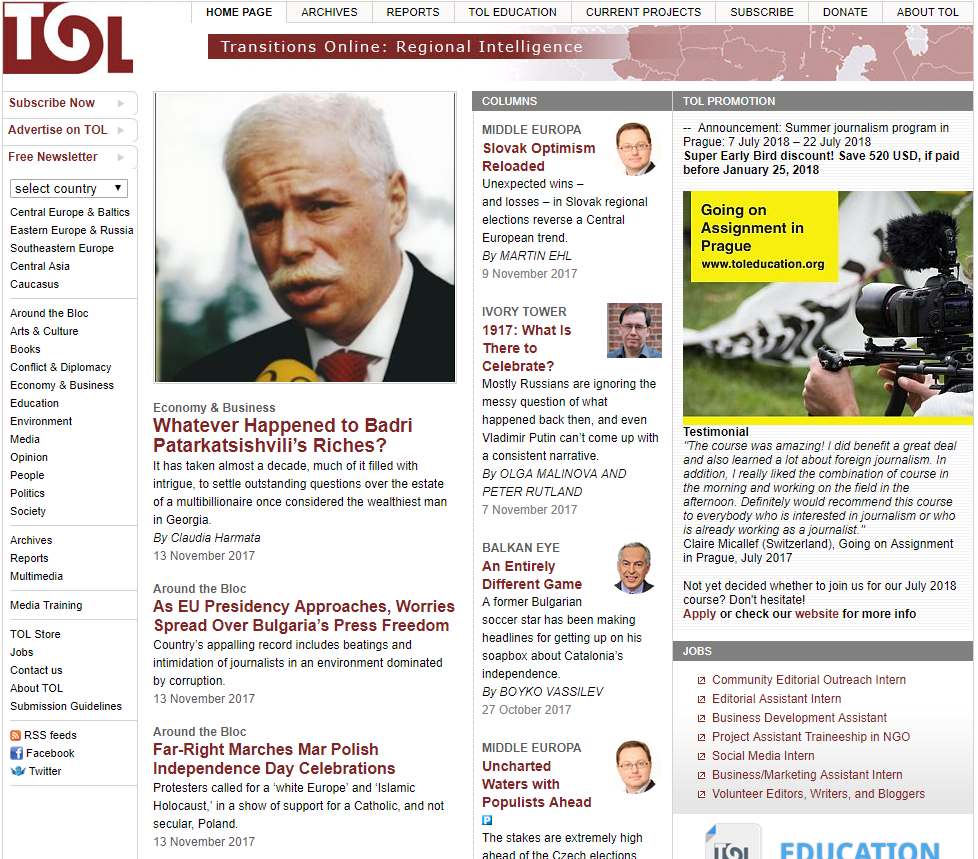
A dozen others also face charges of financial skulduggery at the Balkans’ biggest food producer.
More...
Indictments against Liviu Dragnea and others come amid new anti-government protests, as the Romanian leu drops to a record low.
More...
According to the Association of Chartered Certified Accountants (ACCA), the volume of the «shadow»economy in Ukraine is 1.1 trillion hryvnias or 45.1 % of the gross domestic product. Estimates of the Federation of Employers of Ukraine show that only 50 % of payments to the state budget comes from the clearance of goods, while the rest comprise a corruption component of 40 billion UAH for a year. Much of the large companies move non-declared goods across the state border and do not pay taxes. However, at the official level in Ukraine, it is still not accepted to talk about the servicing of the shadow foreign trade by the customs administration and the collection of corrupt rents from illegal trade in the state.Understanding the essence of the problem gives grounds to assert that the corruption risks in the work of customs are laid down in imperfect customs legislation, high tariff rates of duties and taxes,discrete powers of customs inspectors, the regime of customs procedures in the customs control zone, low level of their automation and physical contact of declarants from customs officers. In the customs case,the main type of corruption is bribery and abuse of influence related to the assistance of illegal and criminal activity in the foreign economic sphere. Subjects of foreign economic activity reduce costs and receive revenues through customs fraud or smuggling. Without corruption, this activity is impossible. On the illegal movement of goods and vehicles, smuggling and counterfeiting through the customs border, a criminal corruption business was created for all bodies and services that carry out various types of state control and law enforcement activities in the customs sphere.The most profitable are corruption schemes related to the illegal import / export of three groups of highly liquid products: tobacco products, counterfeit IT products, petroleum products, cars with foreign registration. For an independent study, illegal migration through the customs border of amber and wood,the manipulation of exports of grain and other highly liquid products deserve.Summarizing, we draw the following conclusions. Customs corruption is based on providing shadow foreign trade and covering economic crime on a transnational or transboundary scale. It is in violation of customs legislation by both parties in customs matters for the purpose of illegal enrichment. In corruption practices, all bodies and services that provide state control over the movement of goods through the customs border of Ukraine and carry out law-enforcement activities in this area participate. The level of corruption in the sphere of foreign economic activity depends on the volume of illegal export-import operations with raw materials and highly liquid products, as well as the ratio of official taxes and the cost of corruption services to economic entities. It was clarified that in parallel with «centralized corruption» in customs authorities there is «competitive corruption» between regional customs and their structural divisions for providing corruption services at lower prices. Measures to prevent corruption and crime should be aimed at reducing the profitability of shadow foreign trade by liberalizing the tax burden at the same time while strengthening control over transfer pricing, including the customs service into an integrated security system throughout the supply chain, implementing common customs control, managing risky operations
More...
This paper examines students’ attitudes towards corruption at the University of Belgrade Faculty of Law. The author relies on the results of his own research related to the students’ value system and, more precisely, to the prevalence, causes, forms and willingness of the students to take part in corruption. The manner in which the author has systematized quantitative data obtained by this research, as well as the conclusions he has reached, are intended to serve as a groundwork for a future project, which should improve analytical, descriptive and explicative investigation of corruption in Serbia. Namely, the author sees the body of research which was published thus far as relatively modest when it comes to the level of theoretical treatment, as it is mainly opinion – and exploration related, and predominantly comprised of sociological post factum interpretations, without any predictive potential.
More...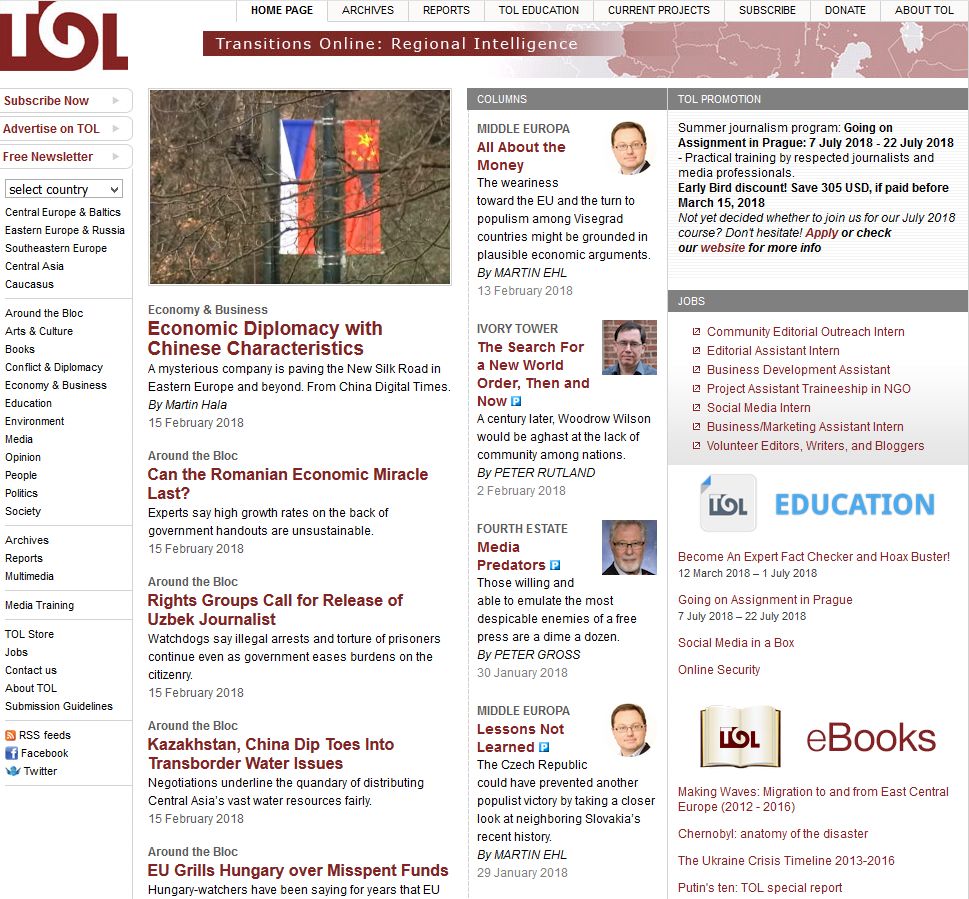
Lawmakers and pundits are scrutinizing the anti-graft unit’s close ties to the country’s main spy agency.
More...
The principles of „Public Procurement” are important for the proper functioning of the public procurement system. There is no doubt that principles of public procurement system have a special significance for the above mentioned system, since they indicate the direction of interpretation of provisions of the public procurement law as well as they allow a proper interpretation of the meaning of legal norms. The purpose of this elaboration is to present two basic principles of the public procurement law, i.e. the principle of fair competition and equal treatment of economic operators as well as the principle of transparency. The Author indicates the institutional expression of these principles in the procedure of awarding public procurement and indicates the violations of the principles which occur in the practice of law.
More...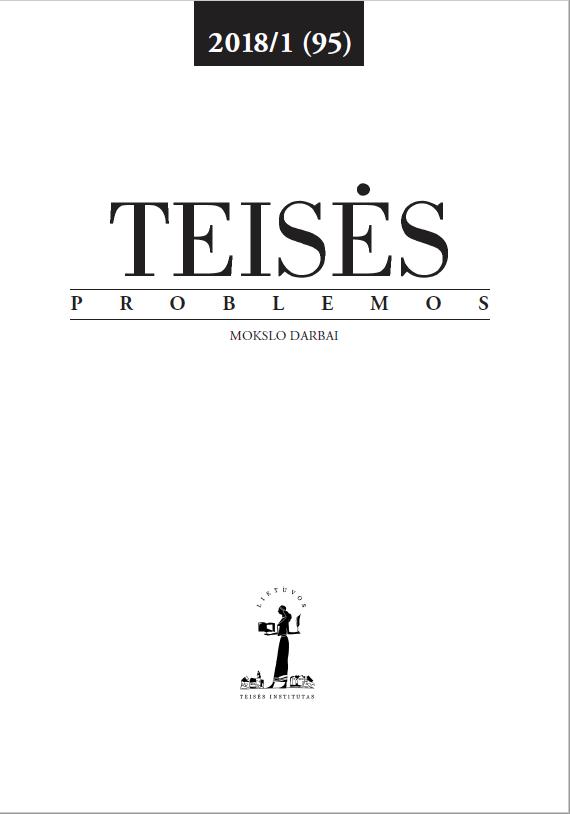
The article deals with voter bribery cases in terms of electoral law. A particular focus of research is drawn on the factual situation of this phenomenon of political corruption in Lithuania, the state of legal regulation and problems of its practical application, challenges being faced by institutions and society when seeking for transparent and democratic elections and appropriately legitimate formation of political representative institutions or an outcome of question solved by a referendum. The author is analysing whether currently invoked control, reaction and anticorruption measures are sufficient and contribute towards effective implementation of provisions of electoral (referendum) laws foreseeing prohibition to bribe voters and persons eligible to vote. The samples of voter bribery cases are presented in order to illustrate how differently content of prohibition to bribe voters and persons eligible to vote is perceived by subjects to whom it is addressed and main institution, i. e. the Central Electoral Commission, which conducts control of its observation. As well it is analysed why in Lithuania this illegal form of electoral agitation is still popular, despite sanctions being applied and certain preventive activity being carried out. Prohibition to bribe voters and persons eligible to vote to Lithuanian electoral laws was introduced in 2005, but such practice is still popular among participants of political campaigns and persons related to them, while “electoral agitation” of such kind itself takes on new and more sophisticated forms, which are “resistant” for relevant identification and qualification. There are several factors influencing this. Firstly, preventive mechanisms do not work properly or are applied too moderately. Secondly, legal regulation in this field is partly inconsistent or ambiguous, therefore some of violations are programmed automatically. In this respect the situation should change after adoption of Elections Code. Thirdly, the Central Electoral Commission does not possess enough control measures and its pratice not in all cases is consistent or reasonable. Fourthly, sanctions foreseen in electoral laws for violations of prohibition to bribe voters and persons eligible to vote not in all cases are applied properly. However, principled position of the Constitutional Court, increasing civil society involve¬ment in democratic process and stricter attitude of the Central Electoral Commission during political campaigns presupposes that recently more and more investigations concerning potential bribery of voters and persons eligible to vote are being carried out. Although the number of violations detected is relatively constant, the situation is improving and more frequently violations are of a nature which does not require to apply ultima ratio sanction of elimination, which could be questioned in the light of legal-democratic efficiency.
More...
Public organisation with mature integrity systems are resistant to the misconduct of their own employees, such as corruption and other misuses of public property. This article argues that legality, legitimacy and legacy are the three legs of a solid system of organisational integrity. Legality since compliance with the legal rules is the precondition of integrity. Organisations moving from legality to legitimacy build their inner regulations on the values and basic principle of the laws and not on their specific provisions only. Organisations with integrity try to leave legacy to their successors, valuable fortune to the future generation, they try to fulfil their mission and help their employees to realize their vocation. The endeavour to go beyond legality to legitimacy and create legacy helps organisations to exceed the level of compliance and reach the level of integrity.
More...
Drama unfolds in Kyiv as police arrest the former Georgian leader, then give way to onslaught by his supporters.
More...
Pressure is mounting on Bulgaria to focus on border corruption ahead of its European Commission presidency.
More...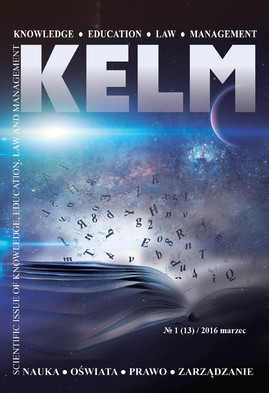
The article is based on the analysis of content speciallycriminological prevention of corruption in Ukraine, the basic issues that need to develop scientific and improvement in regulatory levels, including taking into account international best practice.
More...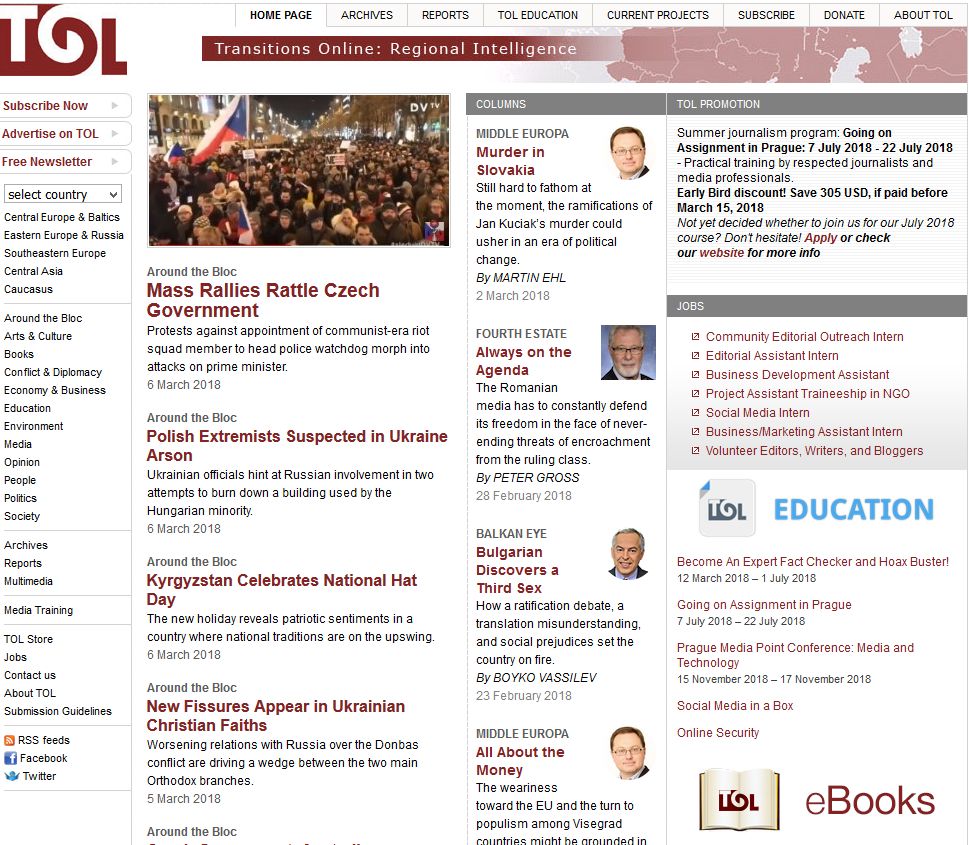
The Romanian media has to constantly defend its freedom in the face of never-ending threats of encroachment from the ruling class.
More...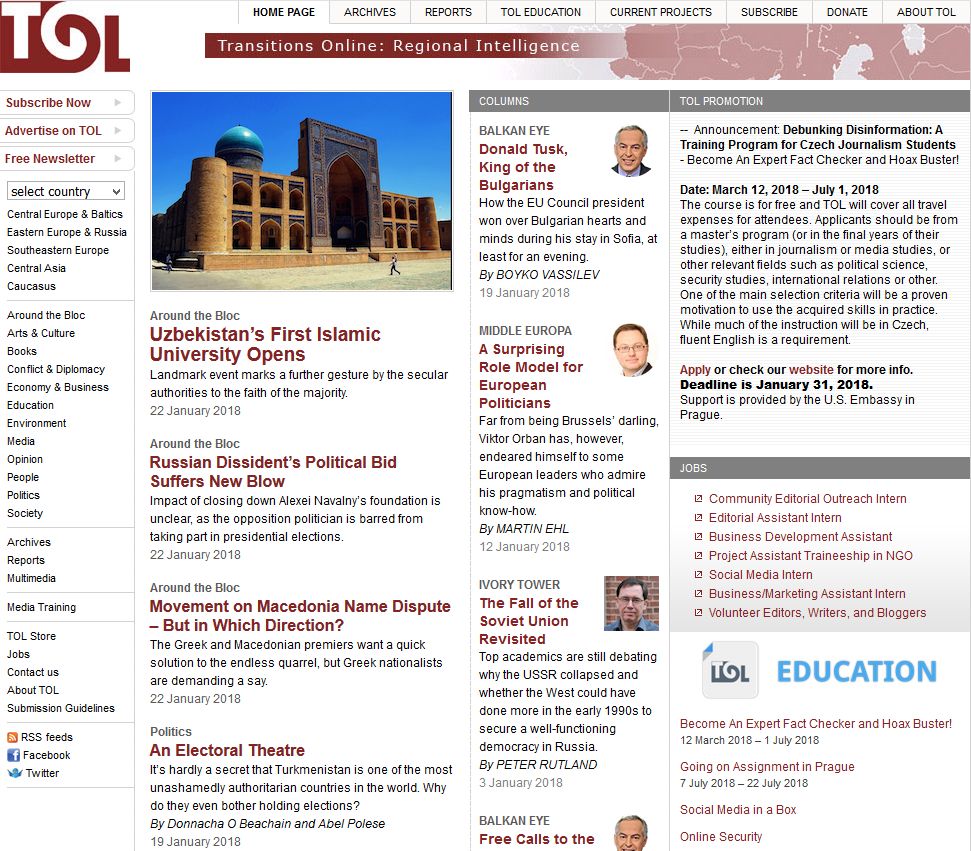
Impact of closing down Alexei Navalny’s foundation is unclear, as the opposition politician is barred from taking part in presidential elections.
More...